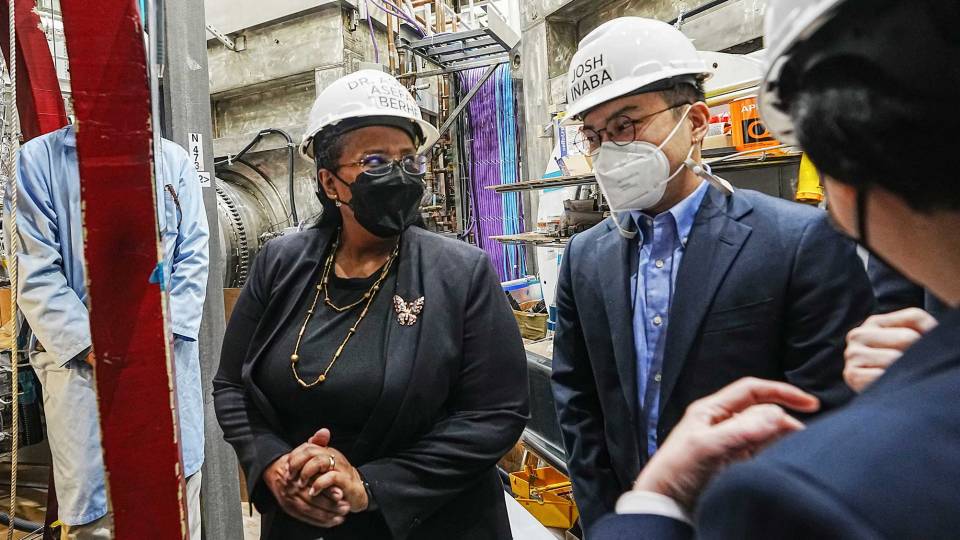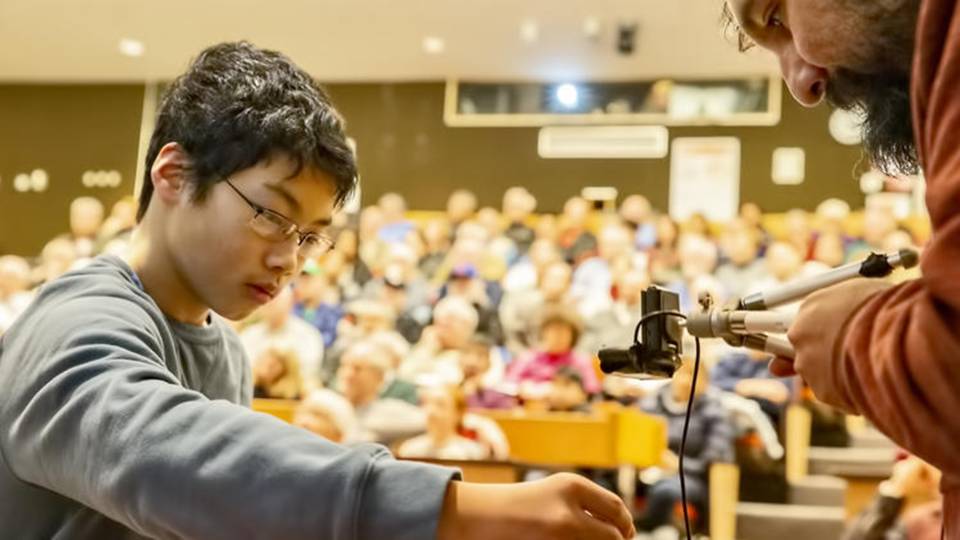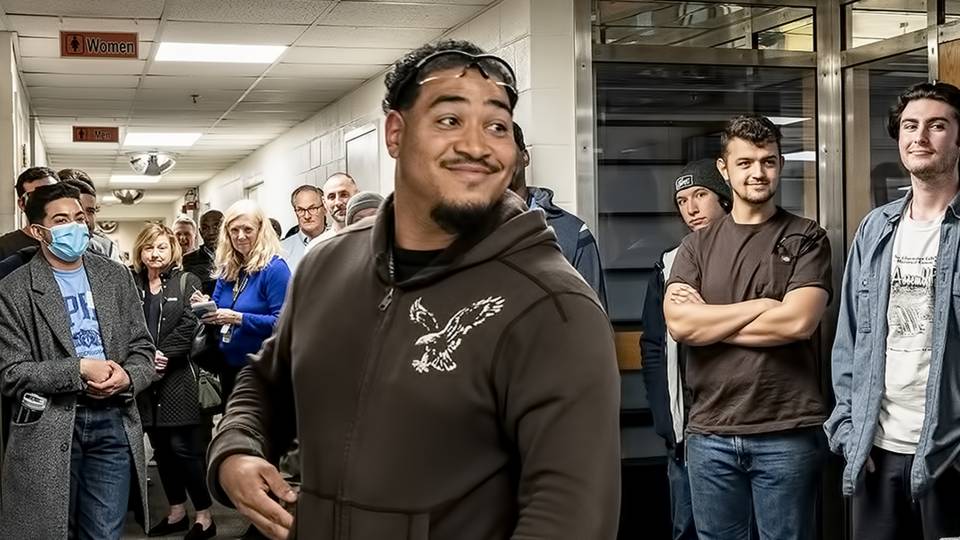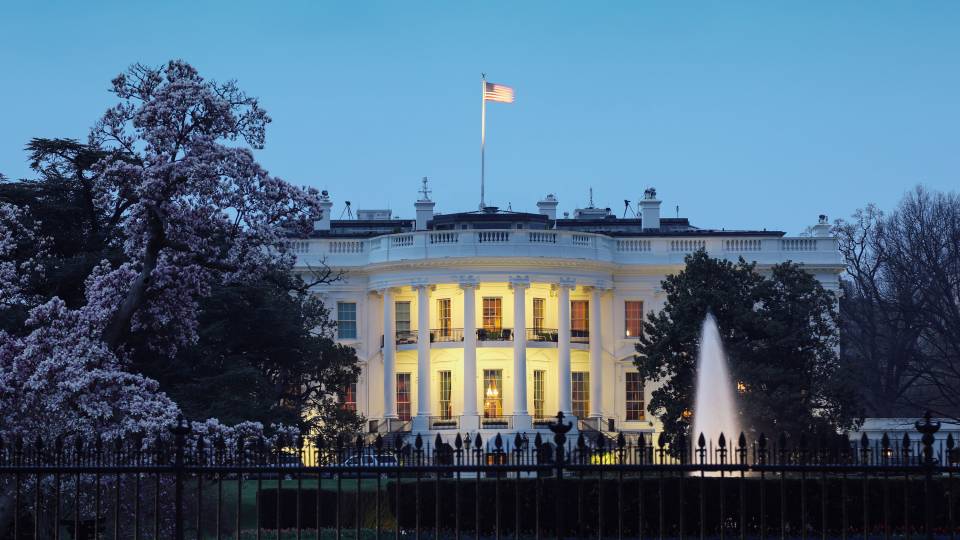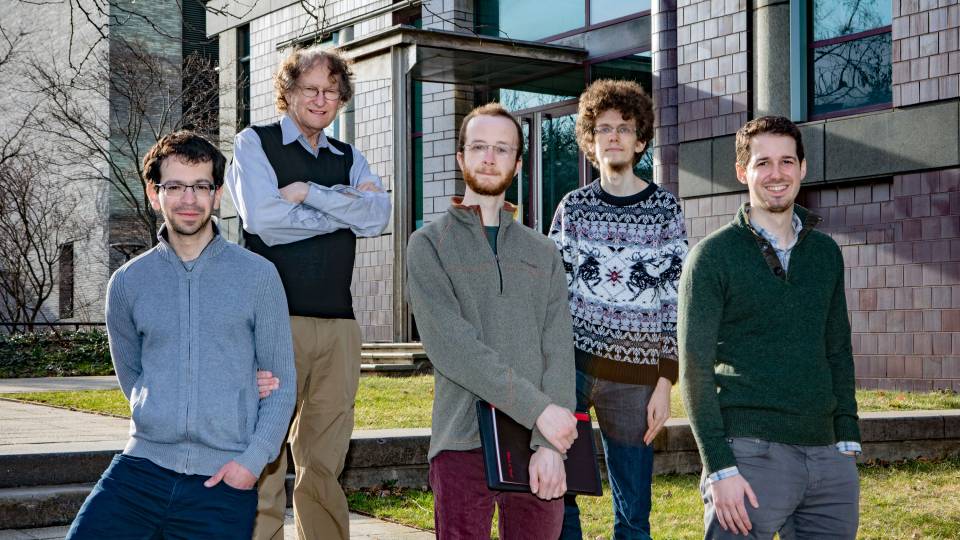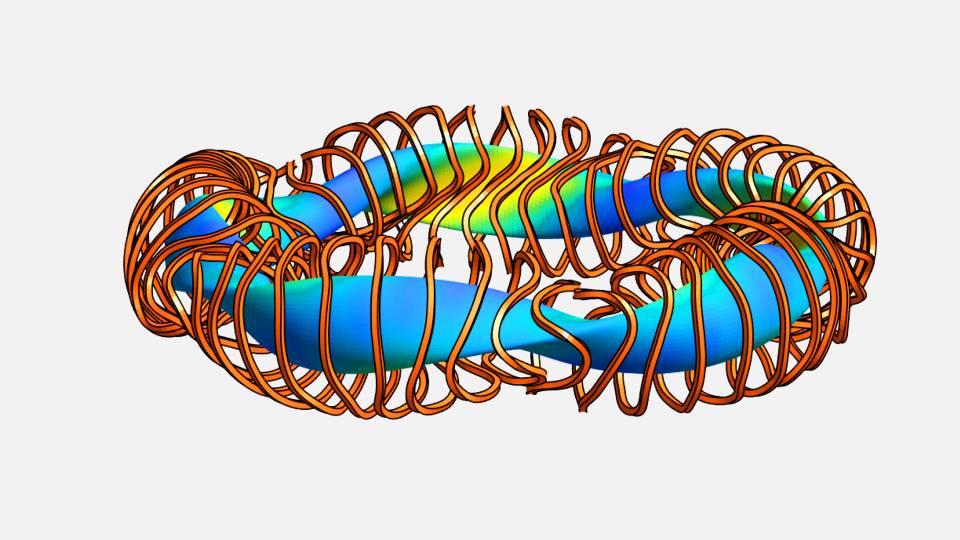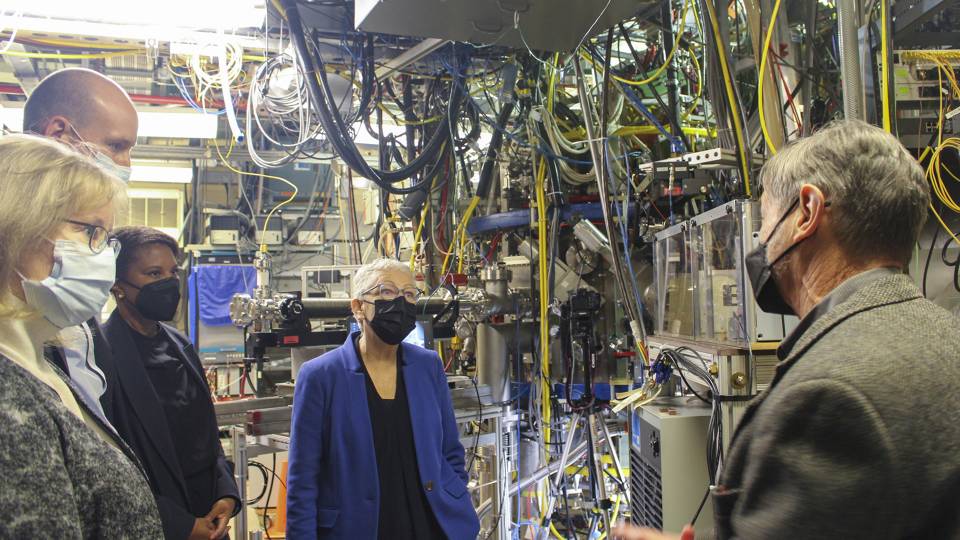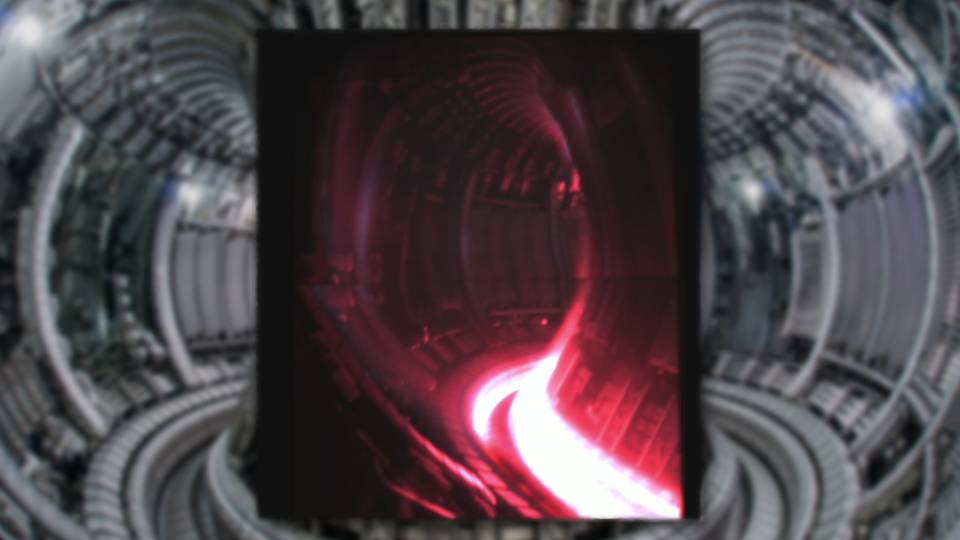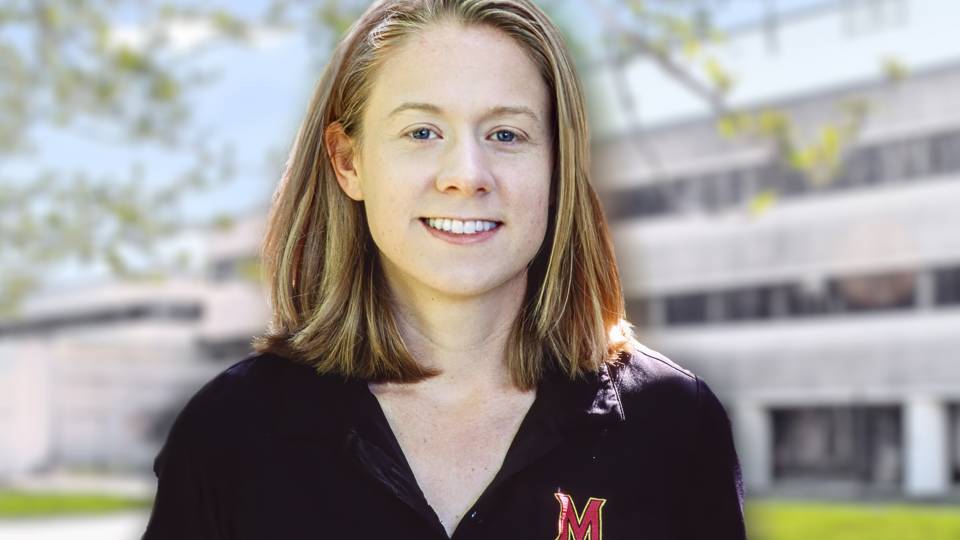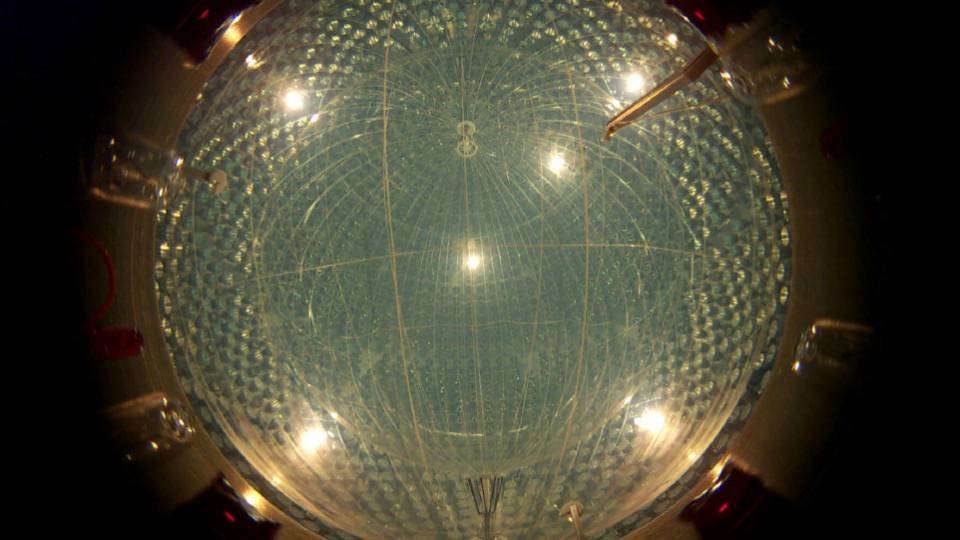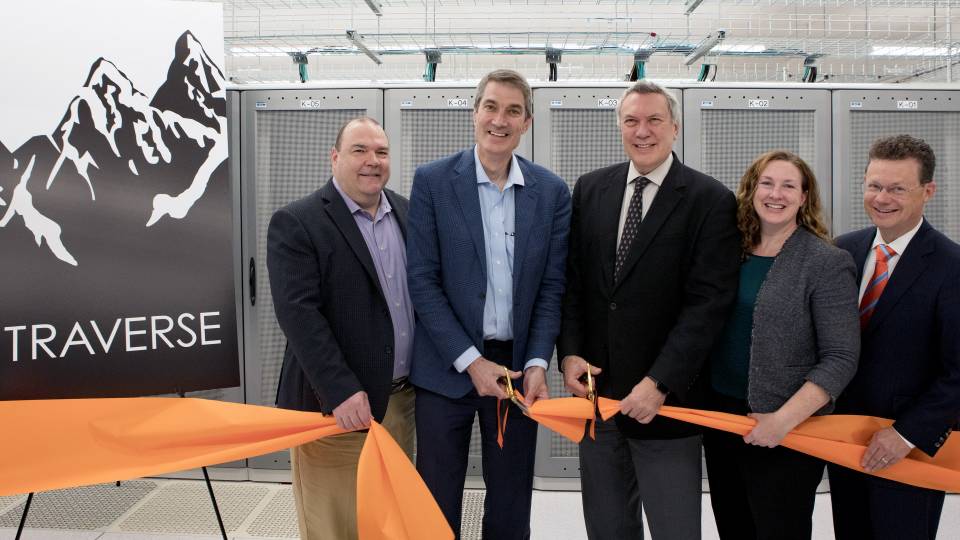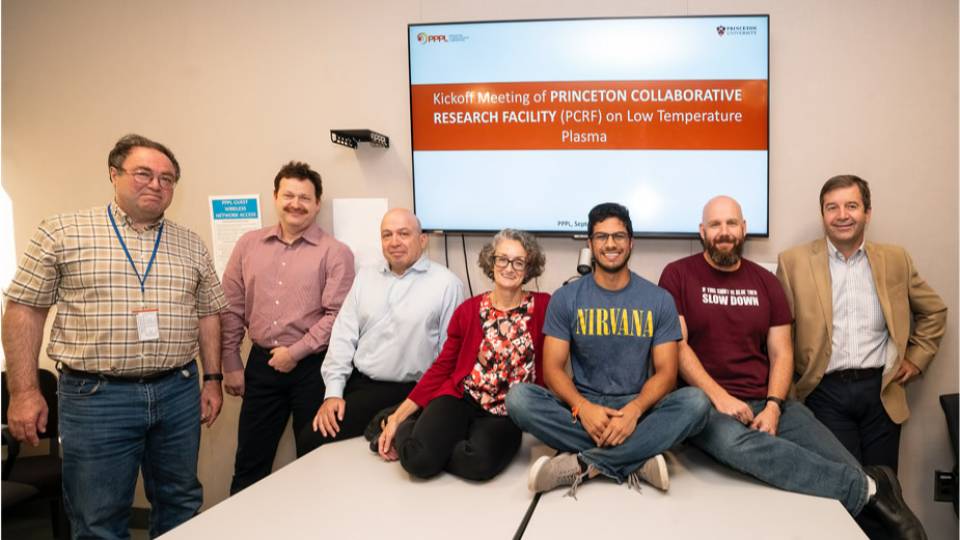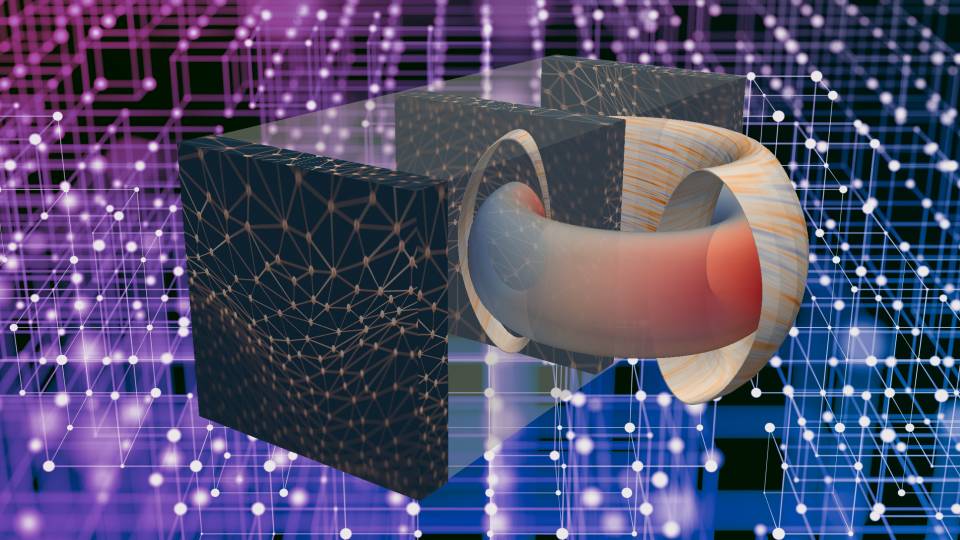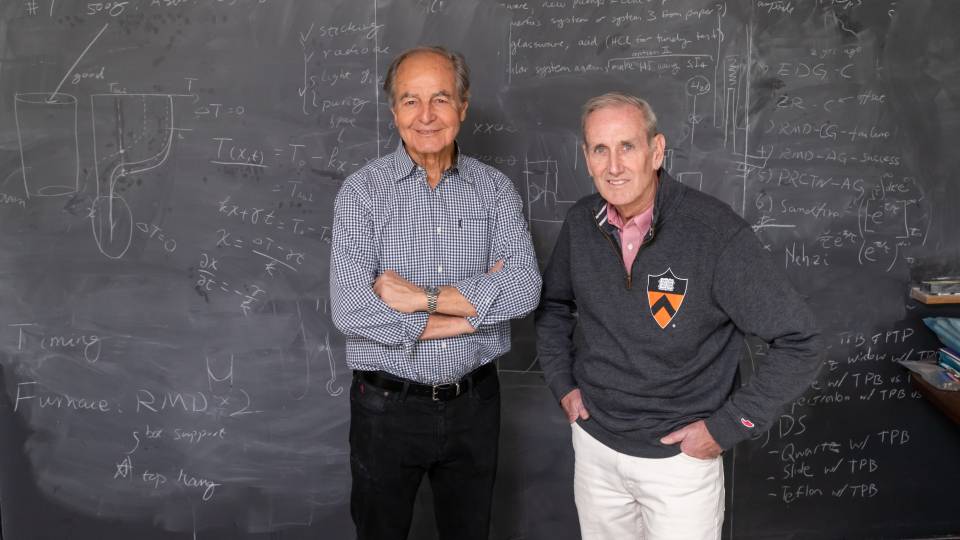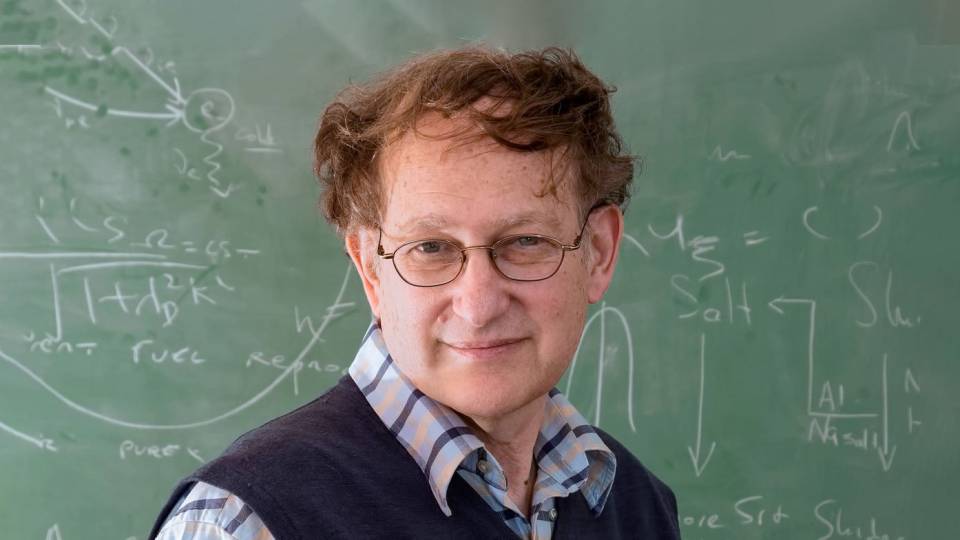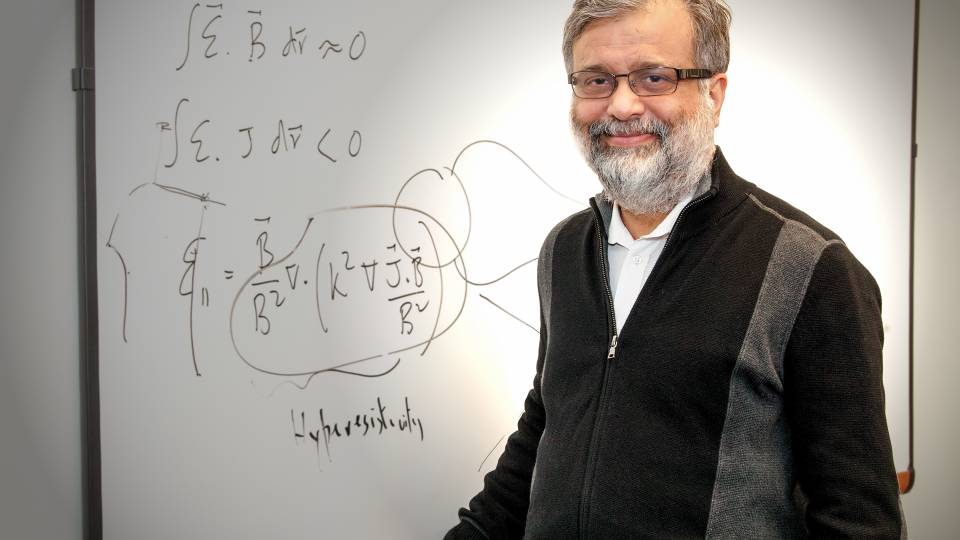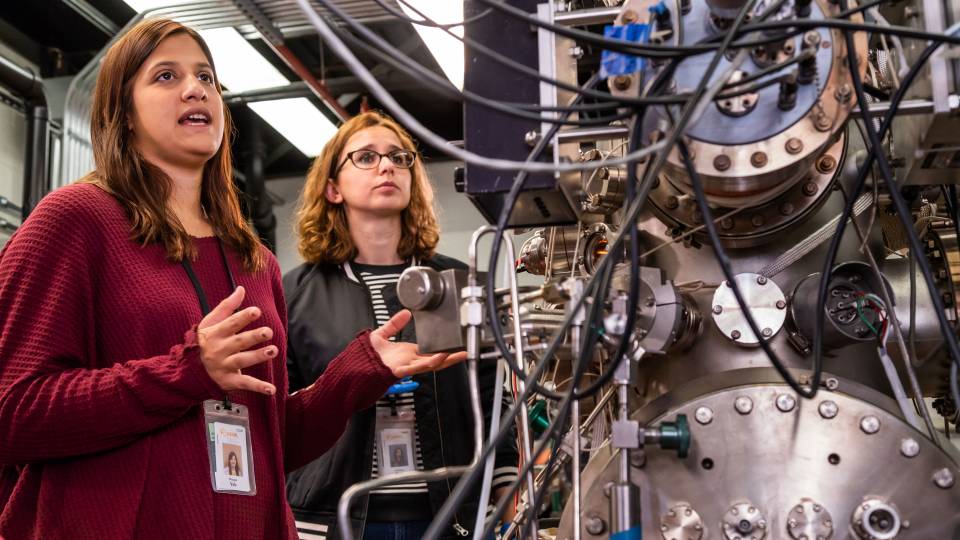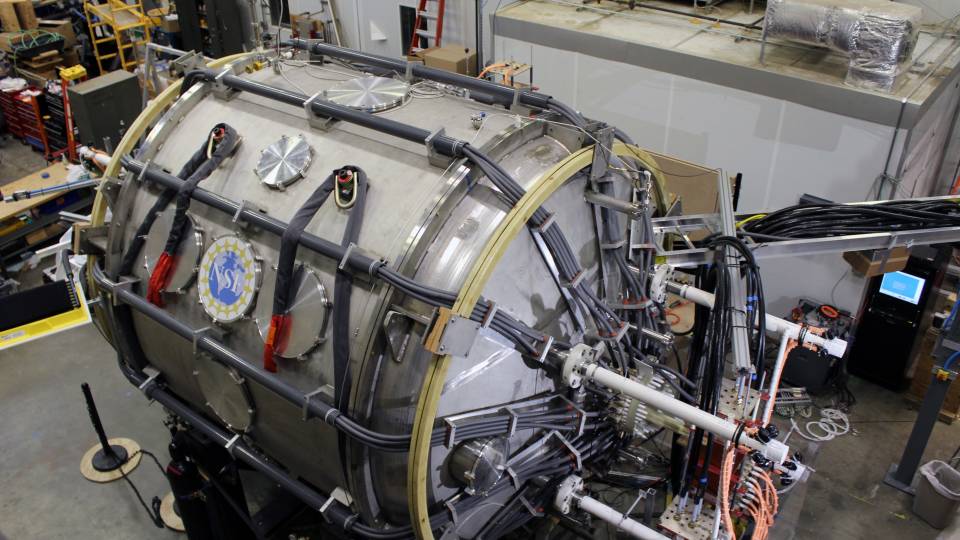On March 21, representatives of the U.S. Department of Energy and Princeton University gathered in Nassau Hall to extend the primary contract for the management and operations of the Princeton Plasma Physics Laboratory. Shown are David McComas (center), vice president for PPPL and professor of astrophysical sciences, who signed for the University, while Michael Toth (second from left), Contracting Officer for the DOE-Princeton Site Office, signed for the Department of Energy. Also on hand were (left to right) Kevin Licciardi, University Counsel; Sandra Rogan, manager of the DOE-Princeton Site Office; and Chelle Reno, assistant vice president for operations for PPPL.
On March 21, the U.S. Department of Energy (DOE) and Princeton University extended the contract for Princeton’s management and operation of the Princeton Plasma Physics Laboratory (PPPL), located on Princeton University’s Forrestal Campus in Plainsboro, New Jersey.
“We are delighted to have this 5-year contract extension to continue the critical work at PPPL,” said David McComas, vice president for PPPL and professor of astrophysical sciences. “The University is committed to advancing research and science in the service of society through our long-term and growing collaboration with DOE.”
PPPL is devoted to creating new knowledge about the physics of plasmas — charged gases — and to developing practical solutions for creating fusion energy. Over the past three years, PPPL’s Richard Hawryluk led the National Academies of Sciences, Engineering, and Medicine report “Bringing Fusion to the U.S. Grid” and played a critical role in the fusion Community Planning Process.
PPPL scientists invented new stellarator configurations with the novel approach of using permanent magnets and used the most powerful supercomputers and artificial intelligence to improve predictive modeling of plasma dynamics in tokamaks. PPPL has also established new research programs and collaborations in microelectronics, quantum materials and devices, sustainability, and computational sciences. PPPL’s core research focus is enabling the scientific breakthroughs required to develop fusion as a safe, clean, and abundant energy source.
Princeton has had the honor of being the PPPL contractor since the Laboratory's inception in 1951, when it was called Project Matterhorn and under the leadership of founding Director Lyman Spitzer, an American theoretical physicist. PPPL is one of 10 National Laboratories stewarded by DOE’s Office of Science, and of 17 DOE laboratories, which comprise a preeminent federal research system providing the nation with strategic scientific and technological capabilities.
The five-year contract extension emphasizes collaboration. Princeton University has agreed to:
- Continue to co-sponsor the Facility for Laboratory Reconnection Experiments (FLARE), a powerful new device for advancing research into magnetic reconnection that was initially assembled at the University with support from the National Science Foundation and then moved to PPPL in 2019. The University will finish funding upgrades to the machine, and DOE will fund project management, infrastructure and commissioning, subject to the availability of funding.
- Continue to co-sponsor investments in PPPL’s high-performance computing capability, which will build on the dramatic increase in computing capacity from the donated Traverse and co-sponsored Stellar clusters located in Princeton’s High-Performance Computing Research Center.
- Co-sponsor new collaborations between PPPL and the University in microelectronics and quantum information science. These collaborations will allow rapid growth in these science and technology areas, vital to the nation’s competitiveness and national security.
- Outfit PPPL’s upcoming new building, the Princeton Plasma Innovation Center, with cutting-edge research equipment. This will maximize the impact of research in the new laboratory spaces and further the joint DOE, Princeton and PPPL mission.
- Contribute administrative services in support of Laboratory operations.
“We have been rapidly increasing the collaborations between the University and DOE over the past three years and are committed to the continued expansion of this key partnership,” said McComas. “By integrating our unique capabilities, Princeton, PPPL and DOE can collectively best serve the nation’s and the world’s needs.”

